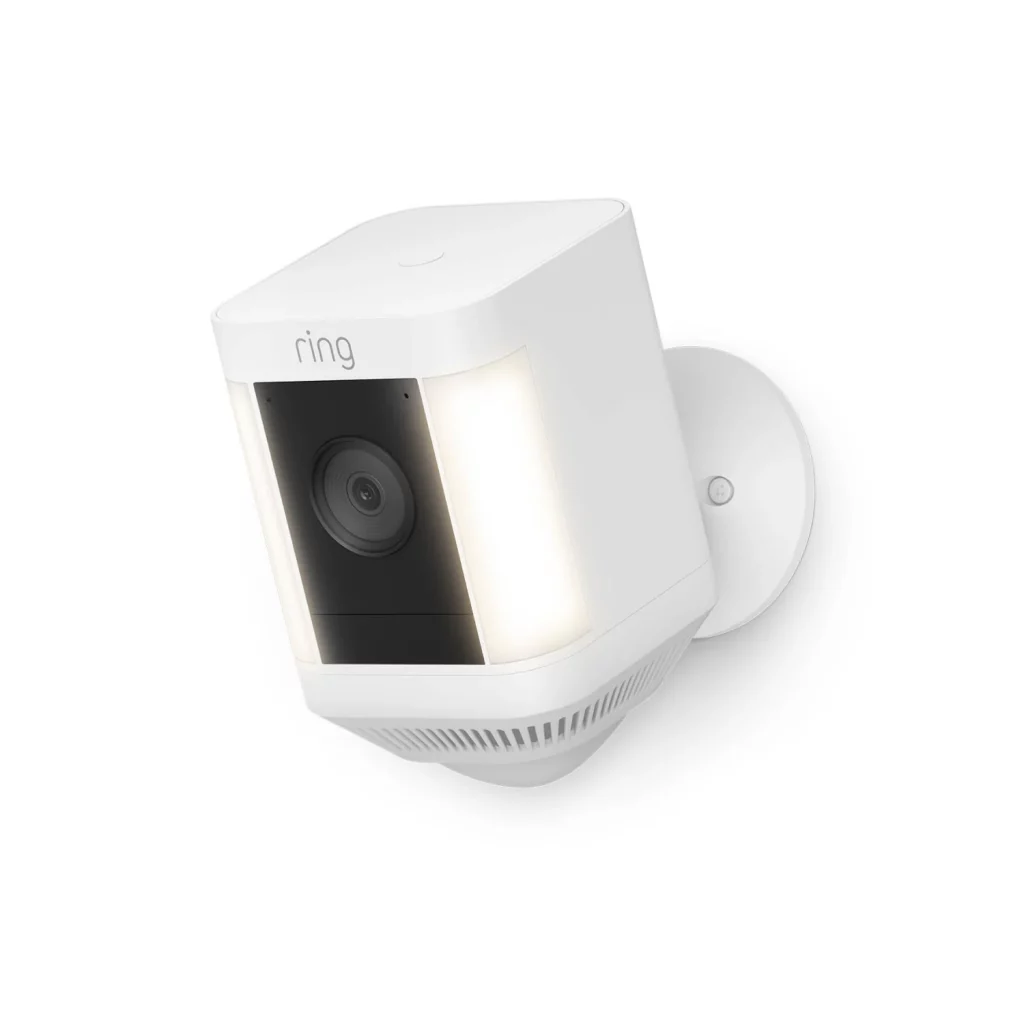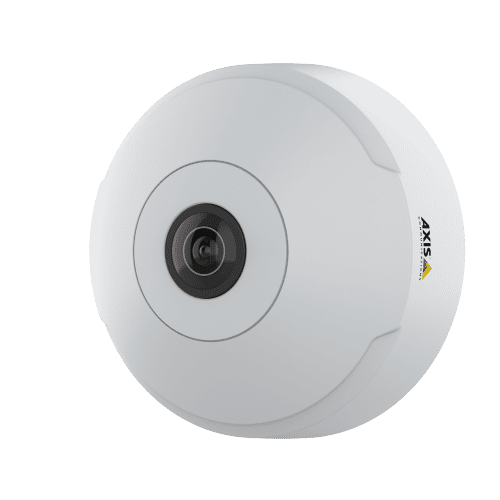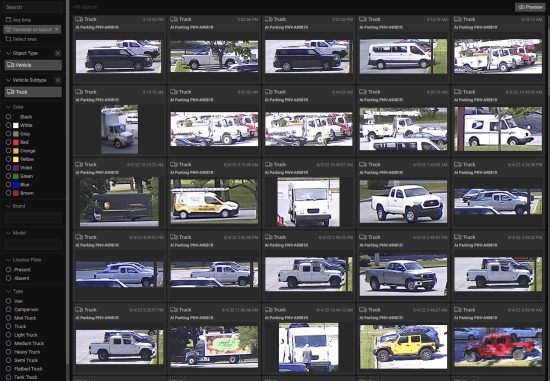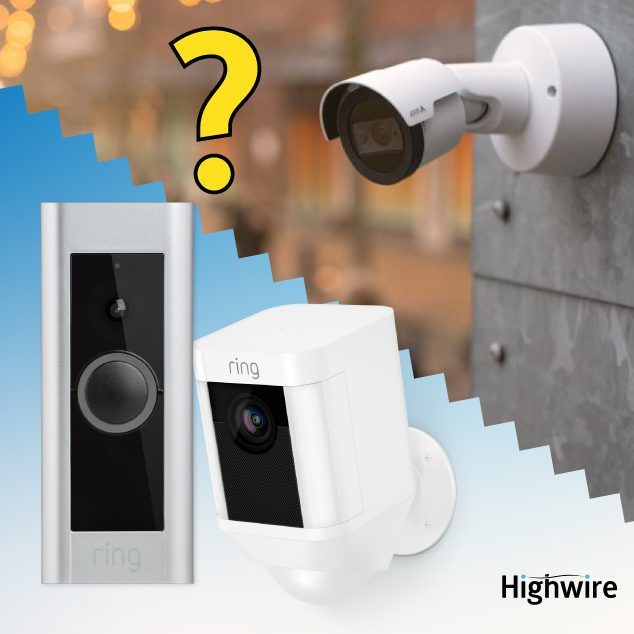If you are looking for a security camera system for your home or business, you may be wondering what the difference is between cloud-based security cameras and network or IP cameras with a network video recorder (NVR). In this article, we will outline the main features and benefits of each type of system and help you decide which one suits your needs better.
Cloud-based security cameras are cameras that connect to the internet and store the recorded footage on a cloud server. This means that you can access your videos from anywhere using a smartphone app or a web browser. Typically this is on the servers of Ring, Nest, Arlo, etc. for a subscription fee, depending on the number of cameras and amount of recorded footage you’d like to save for how long.

Some of the advantages of cloud-based security cameras are:
- Easy installation and setup. You don’t need to run wires or install a separate device to store the videos. You just need to plug in the camera, connect it to your Wi-Fi network, and follow the instructions on the app.
- Remote access and monitoring. You can view live or recorded videos from anywhere, as long as you have an internet connection. You can also receive alerts and notifications when motion or sound is detected by the camera.
- Scalability and flexibility. You can add or remove cameras as you wish, without worrying about storage space or compatibility issues. You can also choose different plans and features depending on your needs and budget.
Some of the disadvantages of cloud-based security cameras are:
- Dependence on internet connection and bandwidth. If your internet goes down or is slow, you may not be able to access your videos or receive alerts. You also need to have enough bandwidth to support the video quality and frequency of your cameras.
- Subscription fees and privacy concerns. Most cloud based security cameras require a monthly or annual fee to store and access your videos. This can add up over time and may not be worth it if you don’t need to review your footage often. You also need to trust the cloud service provider with your personal data and security.
Network cameras, or IP cameras, are cameras that connect to a local network and store the recorded footage on a dedicated device called a Network Video Recorder, or NVR. This means that you can access your videos from within your network using a monitor or a computer, without ever going on to the internet to do so. You can even leave this network completely disconnected from the internet for the highest degree of cybersecurity.

Some of the advantages of network cameras with a NVR are:
- Reliable and secure storage. You don’t need to rely on an internet connection or a third-party service to store and access your videos. You have full control over your data and security.
- Higher quality and performance. You can choose higher resolution and frame rate for your cameras, without worrying about bandwidth limitations or compression issues. You can also record continuously or on schedule, depending on your preferences.
- More features and customization. You can configure different settings and options for each camera, such as intelligent video analytics with deep learning artificial intelligence that can identify the difference between people, animals, and vehicles, greatly reducing the number of false alarms and increasing the overall reliability of alerts. Other features include color night vision, audio recording, etc. You can also integrate your system with other devices and systems, such as alarms, sensors, smart home devices, etc.
- No monthly fees. Your system is fully owned by you and there are no additional subscriptions to make it work. Often, the remote functionality is also an included free feature of the video management software installed on your NVR.

Some of the disadvantages of network cameras with a NVR are:
- More complex and costly installation and maintenance. You need to run wires from each camera to the NVR, which may require drilling holes or hiring a professional installer.
- It’s also a good idea to maintain and update the NVR regularly, which may require some technical skills or support.
Cloud-based security cameras and network cameras with a NVR are two security camera systems that server the same purpose with different features and benefits. To summarize, the difference between using cloud-based security cameras, such as Ring, Arlo, Nest, etc. from network cameras with a dedicated NVR are:
- Cloud based security cameras store the footage on a cloud server and allow remote access and monitoring via an app or a web browser. They are easy to install and scale, but depend on internet connection and bandwidth, and will almost always have subscription fees and privacy concerns.
- Network cameras with a dedicated Network Video Recorder (NVR) store the footage on a local device and allow access and viewing within the network via a monitor or a computer, with many manufacturers offering secure remote access without forwarding ports to the internet. They are reliable and secure, and offer higher quality and performance with no additional subscription fees. However, they require more complex and costly installation and will need occasional firmware updates to remain secure if they are connected to the internet.
For specific questions, or if you’d like information on having a system installed in your business or home, drop us a line via our contact page. We look forward to hearing from you!

